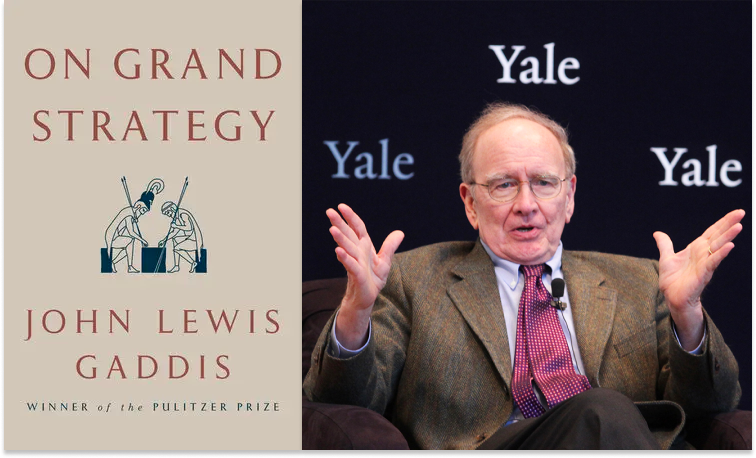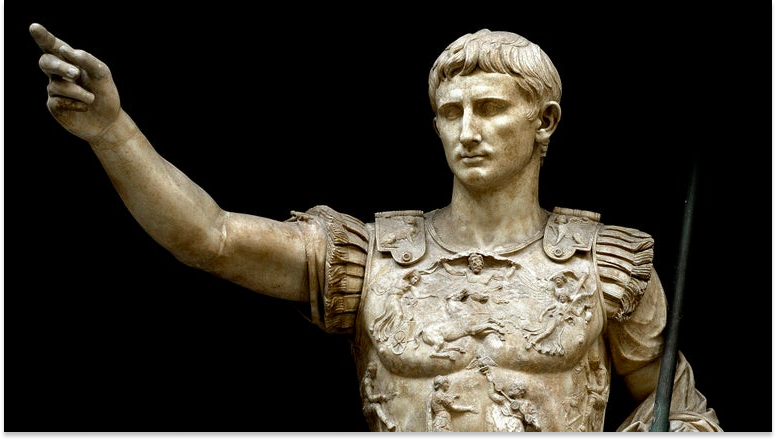source: OpenAI & Grand Strategy-notboring.co
🗒️我的笔记
这是奥特曼被董事会罢免事件到现在看到的站位最宏大的文章。 对一个帝国而言,国家在地理上有边界,但资本、种族、科技是无边界的。 未来的战争是科技、人才、知识的战争。
战争只是政策通过其他手段的延续
-
Do you know how many men Napoleon would have risked to control even a fraction of the wonders we have at our disposal today?
你知道拿破仑会冒多少人的风险来控制我们今天所拥有的奇迹的一小部分吗?
With 770 nerds, OpenAI unlocked infinitely available intelligence. With fewer than 10,000, SpaceX built a rocket that may one day make humans multi-planetary. With about 30,000 lines of code, Satoshi introduced a viable alternative to government-issued currencies.
OpenAI 拥有 770 名书,解锁了无限可用的情报。SpaceX用不到10,000人建造了一枚火箭,有朝一日可能会使人类成为多行星。通过大约30,000行代码,中本聪引入了政府发行货币的可行替代方案。
The occasional board coup is a small price to pay compared to a bloody war.
与血腥战争相比,偶尔的董事会政变只是一个很小的代价。
-
In On War, 19th century military theorist Carl von Clausewitz wrote that “War is merely the continuation of policy by other means.”
19世纪的军事理论家卡尔·冯·克劳塞维茨(Carl von Clausewitz)在《论战争》一书中写道:“战争只是政策通过其他手段的延续。Quote
The great strategist meant that war should always serve policy, rather than the other way around. War is one way to accomplish a goal, not the goal itself. Means, not ends.
这位伟大的战略家的意思是,战争应该始终为政策服务,而不是相反。战争是实现目标的一种方式,而不是目标本身。手段,而不是目的。
Technology, too, is just the continuation of policy by other means, but it’s a positive-sum and relatively peaceful continuation.
技术也只是政策通过其他方式的延续,但它是一种正和的、相对和平的延续。
-
Think of it this way: at the two extremes of the climate change solution spectrum, there’s “reduce the world’s population to under 5 billion people” and “build more nuclear, solar, and fusion.” One would lead to war, death, and misery, and the other to abundance. Same ends, very different means.
可以这样想:在气候变化解决方案的两个极端,有“将世界人口减少到50亿以下”和“建造更多的核能、太阳能和核聚变”。一个会导致战争、死亡和苦难,另一个会导致富足。相同的目的,截然不同的手段。
As tech companies get much bigger, as they accomplish nation-state-level goals with more limited means, their leaders need to think like the great leaders of history, people like Augustus Caesar, Elizabeth I, and Abraham Lincoln.
随着科技公司变得越来越大,当他们以更有限的手段实现民族国家层面的目标时,他们的领导者需要像历史上的伟大领袖一样思考,比如奥古斯都·凯撒、伊丽莎白一世和亚伯拉罕·林肯。
The most ambitious tech leaders need to be grand strategists.
最雄心勃勃的科技领导者需要成为伟大的战略家。
大战略
-
What is grand strategy?
什么是大战略?**“The alignment of potentially unlimited aspirations with necessarily limited capabilities.”
“将潜在的无限愿望与必然有限的能力结合起来。”
That’s how Yale Military and Naval History Professor John L. Gaddis defines it in On Grand Strategy, the 2018 book he wrote to condense the lessons from history’s great leaders and strategists into 312 pages.
这就是耶鲁大学军事和海军历史教授约翰·L·加迪斯(John L. Gaddis)在2018年出版的《论大战略》一书中对它的定义,该书将历史上伟大领导人和战略家的经验教训浓缩成312页。
 {:height 287, :width 445}
{:height 287, :width 445} -
To the grand strategist, specific companies may just be means of acquiring the capabilities to pursue greater aspirations. It covers time, space, and scale.
对于大战略家来说,特定的公司可能只是获得追求更大抱负的能力的手段。它涵盖了时间、空间和规模。
The ancient Greek poet Archilochus of Paros wrote, as Isaiah Berlin remembered it, “The fox knows many things, but the hedgehog knows one big thing.”
古希腊诗人帕罗斯岛的阿基洛科斯(Archilochus of Paros)写道,正如以赛亚·柏林(Isaiah Berlin)所记得的那样,“狐狸知道很多事情,但刺猬知道一件大事。
The grand strategist, according to Gaddis, is both fox and hedgehog: “We’d need to combine, within a single mind (our own), the hedgehog’s sense of direction and the fox’s sensitivity to surroundings. While retaining the ability to function.”
根据加迪斯的说法,这位大战略家既是狐狸又是刺猬:“我们需要在一个单一的头脑(我们自己的头脑)中结合刺猬的方向感和狐狸对周围环境的敏感性。同时保留功能。
Grand strategists must, as Octavian and Lincoln did, “stick to their compass heading while avoiding swamps.” Pursue a grand ambition relentlessly, but remain flexible in your pursuit as you respond to changing circumstances.
大战略家必须像屋大维和林肯那样,“在避开沼泽的同时坚持他们的指南针方向”。坚持不懈地追求宏伟的抱负,但在应对不断变化的环境时保持灵活性。
协调愿望和能力,时间、空间和规模
-
The meta-principle from On Grand Strategy is the importance of aligning your aspirations and your capabilities.
《论大战略》的元原则是调整你的愿望和你的能力的重要性。
If there’s just one thing to take away, it’s that. So this is the one we’ll spend the most time on.
如果说有什么值得我们学习的,那就是这一点。因此,我们将在这一点上花费最多的时间
-
时间、空间和规模,屋大维
-
“Napoleon lost his empire by confusing aspirations with capabilities;” Gaddis writes. “Lincoln saved his country by not doing so.”
“拿破仑因将愿望与能力混为一谈而失去了他的帝国;”加迪斯写道。“林肯没有这样做,拯救了他的国家。”
Time, space, and scale. Napoleon lost his empire by failing to align his capabilities with the scale of the challenge in Russia. Lincoln saved his by patiently waiting for the right time to issue the Emancipation Proclamation.
时间、空间和规模。拿破仑失去了他的帝国,因为他未能将自己的能力与俄罗斯的挑战规模保持一致。林肯耐心地等待合适的时机发布《解放奴隶宣言》,从而挽救了他。
Octavian, who would become Caesar Augustus, grew his capabilities over time to match his aspirations as well.
屋大维后来成为凯撒奥古斯都,随着时间的推移,他的能力也得到了提高,以符合他的愿望。
After the death of Julius Caesar in 44 BC, his heir Octavian waited 17 years to claim the leadership of the Roman Republic that Caesar passed to him. In that time, he made and broke alliances, won and lost battles, built up his strengths and learned to manage his weaknesses, patiently waited for his enemies to eliminate themselves, and came to represent what Rome stood for in the eyes of the Roman people. He built up his capabilities to match his ambitions.
公元前 44 年尤利乌斯·凯撒去世后,他的继承人屋大维等了 17 年才声称凯撒传给他的罗马共和国的领导权。在那段时间里,他建立和破坏联盟,打赢和输仗,建立自己的优势并学会管理自己的弱点,耐心地等待他的敌人消灭自己,并代表了罗马人民眼中的罗马。他建立了自己的能力来匹配他的野心。
 {:height 238, :width 419}
Augustus of Prima Porta 普里马波尔塔的奥古斯都
{:height 238, :width 419}
Augustus of Prima Porta 普里马波尔塔的奥古斯都
-
-
By biding his time – seeing time as an ally – and building up his capabilities to match his ambitions, he gained more power than even Julius Caesar had, maintaining the facade of the Roman Republic while in reality leading the new Roman Empire. And he avoided his predecessor’s downfall, ruling over the Empire for the next 13 years until dying of natural causes just short of his 77th birthday.
通过等待时间——将时间视为盟友——并建立自己的能力以匹配他的野心,他获得了比凯撒大帝更多的权力,维持了罗马共和国的门面,同时实际上领导着新的罗马帝国。他避免了前任的垮台,在接下来的 13 年里统治着帝国,直到在他 77 岁生日前死于自然原因。
How much time do men spend thinking about the Roman Empire? Maybe not enough!
男人花多少时间思考罗马帝国?也许还不够!
-
Altman played the situation perfectly. He drew on a career’s worth of built-up capabilities and relationships, and maintained flexibility on the specifics in pursuit of the long-term goal by showing a willingness to work towards AGI at a new startup, within Microsoft, or at OpenAI.
奥特曼完美地利用了这种情况。他利用职业生涯中积累的能力和关系,在追求长期目标的细节上保持灵活性,表现出愿意在新创业公司、Microsoft内或 OpenAI 为 AGI 而努力。
It was downright Octavian.
这是彻头彻尾的屋大维。
When Octavian reached the height of his power after the downfall of his rival Antony, writes Gaddis:
当屋大维在他的竞争对手安东尼垮台后达到他的权力顶峰时,加迪斯写道:
He secured authority by appearing to renounce it, most dramatically on the first day of 27 when he unexpectedly gave up all his responsibilities. The surprised senate had no choice but to forbid this and to award Octavian the title of princeps (“first citizen”) – as well as a new name: Augustus. 他似乎放弃了权威,最戏剧性的是,在27日的第一天,他出人意料地放弃了所有的责任。大吃一惊的元老院别无选择,只能禁止这样做,并授予屋大维王子(“第一公民”)的头衔——以及一个新名字:奥古斯都。
The board, meanwhile, failed miserably in its coup by ignoring the lessons of grand strategy.
与此同时,董事会在政变中惨遭失败,忽视了大战略的教训。
As Gaddis warns, “The principle, for both Augustine and Machiavelli, reflects common sense: if you have to use force, don’t destroy what you’re trying to preserve.”
正如加迪斯警告的那样,“对于奥古斯丁和马基雅维利来说,这个原则反映了常识:如果你必须使用武力,不要破坏你试图保存的东西。
永远保持战略
-
Acquire capabilities to match your ambitions. Maintain ecological sensitivity. Build alliances. Embrace chaos. Know theory while accepting that it won’t survive contact with practice. Remain flexible in tactics and steadfast in ambition.
获得与你的抱负相匹配的能力。保持生态敏感性。建立联盟。拥抱混乱。了解理论,同时接受理论无法在与实践的接触中生存的事实。在战术上保持灵活性,在雄心壮志上保持坚定。Quote